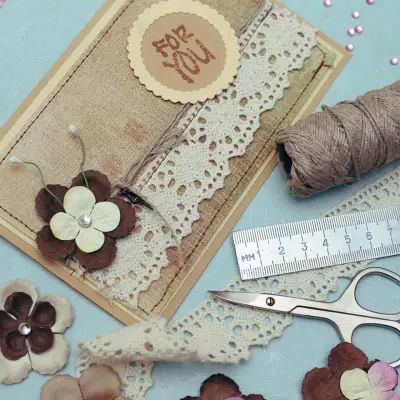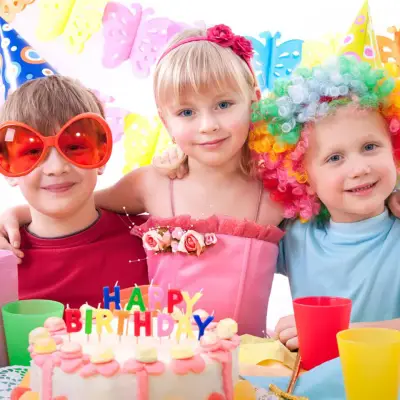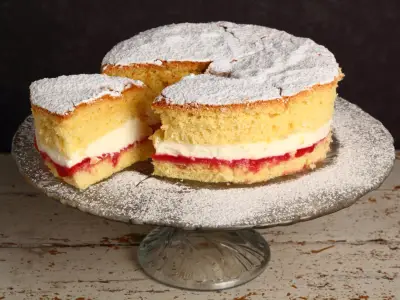Have you ever wondered why knitting has stood the test of time as a beloved hobby for millions around the world? From the rhythmic click of needles to the joy of creating something unique, knitting offers more than just a way to pass the time. It's a craft that provides numerous benefits, ranging from mental wellness to physical health. Let’s unravel the reasons why knitting could be the perfect hobby for you.
Jump to:
- Enhanced Mental Well-being
- Sharpened Cognitive Abilities
- Physical Health Benefits
- Emotional Satisfaction and Sense of Achievement
- Social Connections Through Knitting
- Therapeutic Effects for Mental Health Issues
- The Creative Freedom to Express Yourself
- Sustainability and Mindful Consumption
- Frequently Asked Questions About Knitting
- Learn Knitting for £29
1. Enhanced Mental Well-being
Knitting's repetitive motions foster mindfulness similar to meditation and have been shown to reduce the fight-or-flight response, decreasing the production of stress hormones like cortisol. This promotes a state of calmness in the mind and body.
Furthermore, the act of knitting has been associated with increased serotonin and dopamine release, neurotransmitters that play a role in our feelings of happiness and well-being. Engaging in knitting can therefore be an effective therapy for managing chronic stress, anxiety, and mood disorders such as depression. Additionally, the rhythmic nature of knitting helps maintain a meditative state that clears the mind, allowing for better sleep patterns and overall mental clarity.
Recommended for you!
Best Sellers2. Sharpened Cognitive Abilities
Knitting requires a fusion of logic, mathematics, and spatial awareness, which can significantly sharpen mental acuity. By continuously engaging the brain to count stitches and pattern changes, you are effectively conducting a form of mental exercise that can improve focus, memory, and attention to detail.
These cognitive exercises can help prevent the effects of ageing on the brain, such as memory loss and decreased problem-solving ability. Regularly engaging in such mentally stimulating activities is associated with a lower risk of developing neurodegenerative diseases like Alzheimer's.
Recommended for you!
Best Sellers3. Physical Health Benefits
While often viewed as a sedentary activity, knitting involves repetitive motion of the fingers, hands, and forearms, which improves muscle dexterity and strength. These movements can also enhance blood flow to these regions, which is beneficial for those with circulatory issues. Knitting helps maintain joint flexibility and can reduce swelling and pain associated with arthritis.
Moreover, as an activity that can be done sitting down, it provides a form of exercise for those with mobility issues, contributing positively to maintaining motor function and reducing physical health decline.
4. Emotional Satisfaction and Sense of Achievement
Knitting offers visible results that build self-esteem and provide sensory satisfaction. The texture of the yarn and the visual patterns created can be immensely pleasing. Also, the act of completing a project can trigger the brain's reward centre, releasing endorphins and creating feelings of happiness.
This sense of achievement and the ability to witness the fruits of your labour come to life are invaluable for mental health, promoting resilience and a sense of purpose.
5. Social Connections Through Knitting
Knitting can be a communal activity, whether in person at knitting clubs and cafes, or online through forums and social media groups. These communities are rich sources of emotional support and encouragement, fostering strong interpersonal connections and friendships. They serve as educational resources where skills are passed down and innovations shared, enhancing a sense of belonging and community engagement.
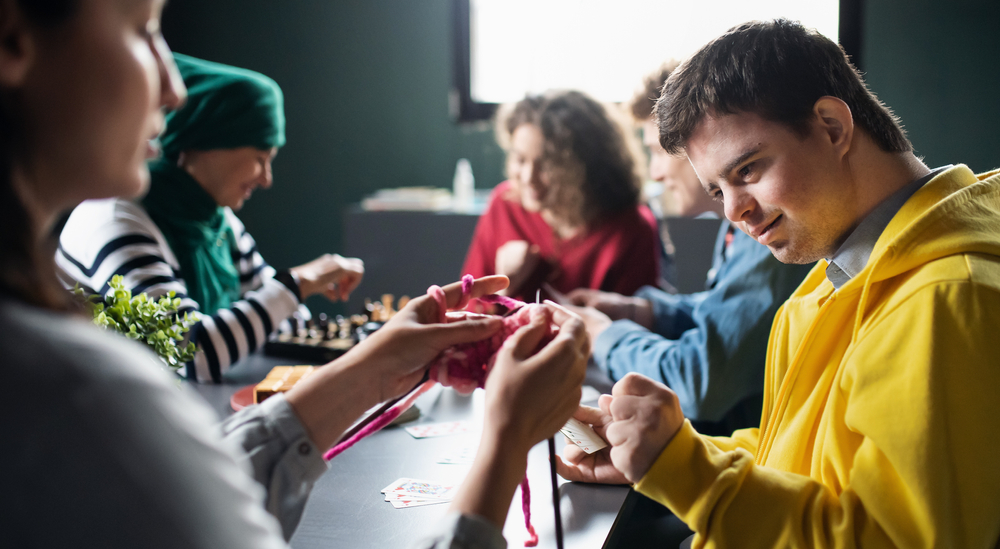
6. Therapeutic Effects for Mental Health Issues
The therapeutic properties of knitting are especially beneficial for those with ADHD, depression, or high levels of stress. The repetitive and rhythmic nature of knitting helps produce a calming effect on the brain, which can decrease anxiety and help manage impulsivity and hyperactivity often seen in ADHD. The focus required in knitting allows for longer periods of directed attention, which can improve overall mental discipline.
7. The Creative Freedom to Express Yourself
Knitting offers unlimited creative possibilities that empower you to express individuality through the customisation of design, colour, and texture. Each project can be tailored to reflect personal style or meet specific needs, which enhances creativity and personal expression. This can be particularly fulfilling as it allows for continuous growth and self-improvement, which are key aspects of personal satisfaction and life satisfaction.
8. Sustainability and Mindful Consumption
In a world increasingly conscious of its environmental impact, knitting can be a sustainable practice. By choosing organic, sustainably sourced yarns, knitters can reduce their environmental footprint.
Additionally, knitting your own clothing and accessories leads to a deeper appreciation for craftsmanship, which can counteract the throwaway culture of fast fashion. This contributes to less waste and encourages more thoughtful consumption and greater appreciation for the items we use and wear.
Frequently Asked Questions About Knitting
What Skills Do You Gain from Knitting?
Knitting helps you develop a range of skills that can be beneficial in everyday life. Beyond improving fine motor skills and hand-eye coordination, knitters often experience enhancements in their planning and organisational skills. As you tackle various projects, you learn to follow patterns and adapt them to your needs, which can also boost your problem-solving and adaptability skills.
How Does Knitting Help You Physically?
While we've touched on how knitting helps maintain finger dexterity, it’s also beneficial for your overall hand and arm strength. Regular knitting can actually help prevent arthritis and tendinitis by keeping your joints flexible and muscles engaged. However, it's important to knit in moderation and take breaks to avoid strain.
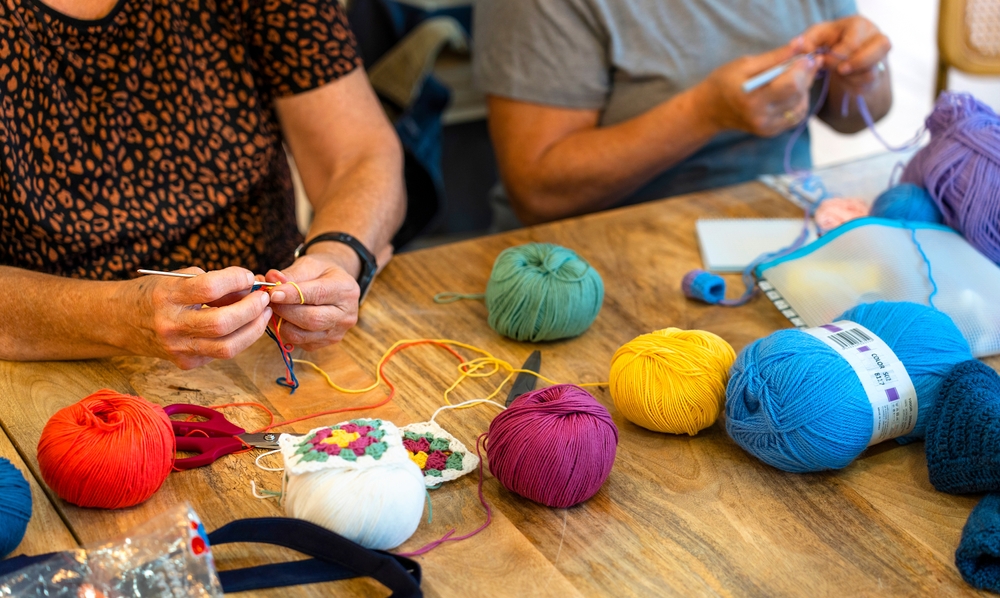
Why Is Knitting So Addictive?
Many knitters find the craft addictive due to the pleasure and relaxation it brings. The repetitive motion of knitting can be incredibly soothing, creating a "flow" state similar to meditation. Once you start seeing your creation come to life, it can be hard to stop. Additionally, the endless possibilities for learning new stitches and techniques can keep the hobby fresh and engaging.
What Are the Mental Effects of Knitting?
Knitting can significantly impact mental health by reducing symptoms of depression, anxiety, and stress. It provides a mindful, meditative practice that helps distract from chronic pain and troublesome thoughts. Regular knitters often report feeling calmer and happier.
What Is the Psychology Behind Knitting?
The psychology behind knitting involves its ability to act as a mindful practice that promotes relaxation and reduces anxiety. It can also fulfil the psychological need for a sense of accomplishment and pride in creating tangible objects. Knitting can serve as a form of self-care and a method to regulate emotions.
Is Knitting Good for Anxiety?
Knitting is an excellent hobby for managing anxiety. It helps focus the mind on the task at hand and away from anxiety-inducing thoughts. The repetitive motions can be soothing, helping to regulate breathing and heart rate, similar to the effects of deep meditation.
Does Knitting Count as Exercise?
While knitting is not a cardiovascular exercise, it is a form of mental and physical activity. It keeps your hands and arms moving, which can help improve joint flexibility and reduce the risk of developing joint and muscle issues.
Is Knitting Good for My Brain?
Knitting is beneficial for the brain. It engages multiple brain regions, including those responsible for attention to detail, memory, and problem-solving. Regular knitting can help keep the mind sharp and may even help stave off the effects of ageing on the brain.
Recommended for you!
Best SellersLearn Knitting for £29
Whether you're looking to improve your mental or physical health, connect with others, or simply enjoy a creative outlet, knitting has numerous benefits. Enroll in our Knitting Diploma Course at Centre of Excellence and discover the joy and satisfaction of this wonderful craft. We’re thrilled to offer you the Knitting Diploma Course for just £29 for a limited time!






